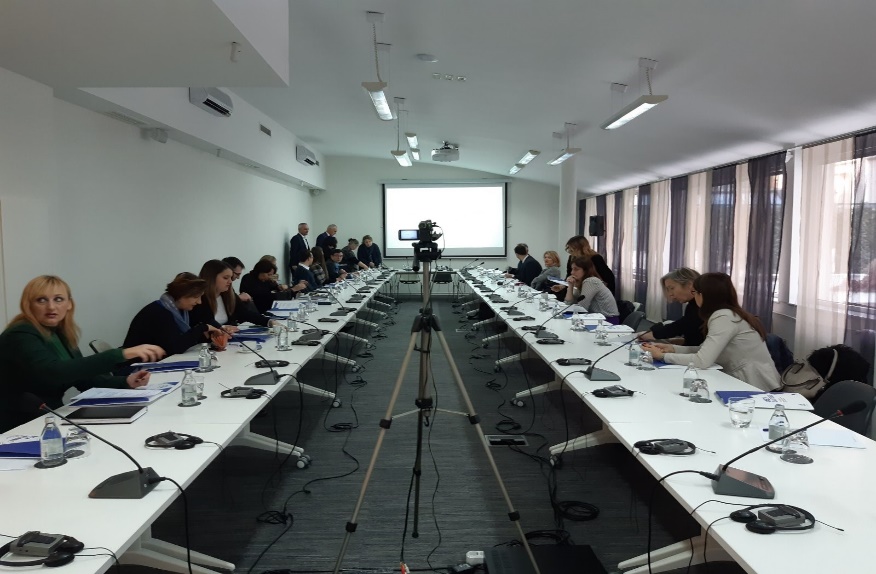The Project came out with the assumptions for the establishment of work- and time-related standards in the judiciary at the meeting attended by the representatives of the working groups for the development of mid-term human resources strategy in the judiciary, the Working Group on the issues of normative delineation of budgeting, the Working Group on the development of the methodology for weighting cases. Besides the Council‘s representatives, as beneficiaries of the Project, and the representatives of the Ministry of Justice, the meeting was attended by the representatives of the EU Delegation in Serbia, Council of Europe, State Prosecutorial Council, Misdemeanour Court in Belgrade and Higher Public Prosecutor’s Office in Belgrade.

The Project’s concept of the new program budgeting methodology will contain recommendations of unique and work- and time-related standards in the judiciary, aligned with international rules. Clearly defined standards should provide for information on the maximum capacity of each court and, based on that, determine the future planned number of resolved cases.
Modelled on the international standards, the responsibility of the institutions for implementing measures and public policy activities, as well as performance assessment, were introduced by the 2018 Law on the Planning System for each area of state activity and for each category of functions. This entails introduction of standards in providing public services, against which to “measure” the work of the holders of authority that spend budget resources at all levels, which also applies to courts.
Developing work- and time-related standards for resolving court cases requires setting up and development of business processes for resolving cases within the optimal and planned time frame, notably:
- Determining the maximum duration of proceedings expressed in months;
- Classification of cases according to complexity (highly complex vs standard);
- Determining the maximum scope of available working time per judge in the course of one year of service;
- Identifying available (existing) human resources in the judiciary during one year/three years;
- Determining the necessary (excess or lack of) resources for resolving the overall number of pending court cases in one year / over three years.
Depending on the above elements, the scope of financial resources is determined, i.e. an independent court budget.

Classification of court cases according to their difficulty (case weighting) is the basis for the development of work- and time-related standards. One of the tasks of the experts on the Project was to run an analysis and make recommendations for improving the existing weighting system in 20 pilot courts which would be applied across the judiciary.


